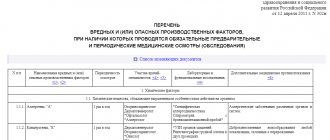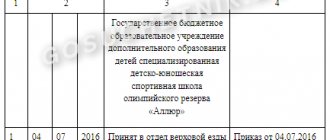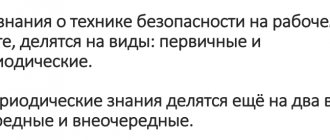Regulatory requirements
A medical examination is required by law.
List of regulatory documents on the basis of which the inspection is carried out:
- Labor legislation. The requirements of the law determine that every worker must undergo medical examination by specialists. The same document explains what the consequences will be if the event is not completed.
- The labor protection rules of any industry also require a medical examination.
- The order of the Ministry of Health specifies in what cases and under what factors a medical examination of employees is carried out.
These are the main documents according to which the inspection is carried out. Also regulating the passage will be a card for a special assessment of the conditions of the labor process. The map is drawn up by an expert commission, it sets out the reasons for the passage.
Who should pay for employee medical examinations?
The company fully bears the cost of the entire range of measures to inspect employees . In addition, the employee of the organization retains the average salary for the period of passing the medical commission. The personal medical record is given to you, as the employer, for the entire time the employee works for the company.
The cost of a medical examination by one specialist can vary from 1,500 to 5,000 rubles, depending on the region and the necessary tests. Most clinics offer a discount proportional to the number of employees.
The costs of the initial medical examination for the applicant also fall on the employer. Payment for a medical examination for employment is made in the same way as for a periodic examination. If the candidate’s health does not allow concluding an agreement with him, the medical book remains for his personal use.
If a potential or current employee has paid for specialists, the law provides for compensation for the costs of a medical examination by the employer. To do this, the employee just needs to write a free-form application and attach documents confirming payment.
If employees fail to undergo a medical examination due to the fault of the employer and are subsequently removed from duties, the company is obliged to pay them an amount equal to 2/3 of the salary.
Through the compulsory insurance fund, part of the amount for undergoing a medical examination is compensated.
Unscheduled, extraordinary
To maintain safety when performing work, the legislation provides for unscheduled and extraordinary inspections. The medical examination includes a set of measures aimed at identifying pathological abnormalities. Unscheduled medical examinations exist, and an employee can undergo them in advance, regardless of the schedule.
The right to referral is also granted to the employer.
A medical examination may be carried out unscheduled.
This happens in cases where:
- the employee’s health has deteriorated and he is unable to work;
- if there is a suspicion of an occupational disease;
- there is a need to confirm your health status;
- when extraordinary medical examinations are carried out;
- for those working in the field of trade and food;
- health workers;
- employees of child care institutions;
- drivers.
If there are no recommendations from management to undergo the examination, then the employer has the right to send the employee to undergo it himself.
Based on the completed examination, the enterprise administration decides whether to allow the employee to perform production tasks.
If health does not allow working under these conditions, then the company management may remove the employee from work.
What types of medical examinations of workers exist and the purposes of their conduct?
- Preliminary medical examination
- Periodic medical examination
- The third type of medical examinations is unscheduled and unscheduled medical examinations.
- The next type of medical examinations is pre-shift and post-shift, as well as pre-trip and post-trip examinations
It is carried out during hiring so that the employer knows about the actual health status of the job applicant. This procedure is mandatory and cannot be bypassed under any circumstances; order 302 n of the Ministry of Health will confirm my words.
It is imperative to monitor the provision of a medical report. This is especially important for employees who will subsequently work in harmful and dangerous working conditions.
From personal experience and “full” cones, I will tell you one thing - enter into an agreement with a medical institution to undergo a preliminary medical examination of your future employees.
This way, you will protect yourself and your supervisor and avoid providing reports purchased from “leftist” clinics, because it happened that diseases such as cirrhosis of the liver and serious heart diseases surfaced, of which there was not even a hint in the conclusion.
People go to great lengths to earn money, even to hide serious illnesses, but do not realize that they can harm not only themselves by aggravating their illnesses, but also their employer.
If a future employee refuses to undergo a preliminary examination, then the employer has every right to refuse employment.
Such an examination must be carried out on working personnel after a certain period of time - it helps to ensure that the health of employees has not deteriorated during the period of work!
If there is a harmful impact on workers during work, then the risk of occupational diseases must be prevented. What if an employee has medical contraindications discovered during a periodic medical examination.
In this case, the employer should not allow an employee with medical contraindications to work. The justification for this is Article 212 of the Labor Code of the Russian Federation.
And here the employer does not have the right to compromise and allow the employee to fulfill his job duties, because he violates Art. 76 Labor Code of the Russian Federation.
I’ll tell you more about the removal procedure in other materials, but for now let’s continue.
They are necessary to ensure greater safety for both the employer and the employee himself. Moreover, this is provided for by law. And now I’ll tell you about a couple of my examples when, miraculously, I didn’t have to “dance on a rake.”
Before being sent to remote sites, especially to the Far North, all employees undergo a more extensive medical examination, with an increasing list of doctors and procedures. Moreover, if the object is in a hard-to-reach place.
Moreover, even with a positive conclusion from a medical examination, it often happens that climate change negatively affects the employee’s well-being. Health problems can easily begin.
So, the attention was attracted by one employee who often went to the medical center to measure his blood pressure and complained of headaches. The shift ended and in order to avoid a possible deterioration in health on the next shift, the employee was given a referral for an extraordinary medical examination on the basis of Art. 214 Labor Code of the Russian Federation.
Shift work is considered more stressful than regular work hours and often the living conditions are not as favorable as if you were living at home.
Regular trips to areas with difficult natural and climatic conditions to perform his job duties became contraindicated for our employee, and based on the results of an extraordinary medical examination, he was transferred to easier and more favorable work. But it could have been different, as periodically happens in practice...
I have encountered these situations more than once, including refusal to undergo an extraordinary medical examination. In this case, the employer has the right to issue a suspension from work due to failure to undergo a medical examination. The topic is not easy! We will look at this issue in a separate article.
They require certain workers to undergo health checks before and after a shift or flight.
For example, these are workplaces in hazardous production, with a high level of harm, or control of a source of increased danger is required, where lack of control can lead to injury or death of others (Article 46 of Law No. 323 stipulates this requirement).
Preventive
An important solution is preventive examination of citizens. If you undergo a medical examination in a timely manner, you can avoid many problems. When diseases are detected in the early stages, they can always be prevented.
Objectives:
- detection of viral pathologies;
- determination of health group;
- providing advice on health issues;
- consultation on serious abnormalities, including cardiovascular diseases;
- An observation group for clinical examination is established, including for healthy people.
The event is held once every 2 years. If a citizen goes for a medical examination, then he does not need to go for a medical examination. If a special assessment of the conditions of the labor process identifies dangerous or harmful factors during a medical examination, then the management of the organization takes this information into account.
Medical examinations
The state legally establishes a certain frequency of medical examinations by the workforce. Managers can be confident that the members of the enterprise team are healthy and capable of performing their duties. Such information is important for employees and managers of the organization.
The provision of services for medical examinations in Moscow is dealt with by a medical specialist. Here you can undergo the necessary examinations quickly and efficiently. Our clinic is licensed to provide medical examinations. For legal entities, we offer to conclude an agreement to conduct examinations for your employees.
Description of service
The procedure for organizing and conducting medical examinations is regulated by Order of the Ministry of Health No. 302, Law No. 323-FZ, and the Labor Code. The legislation specifies the frequency of mandatory medical examinations for employees.
Thanks to such events, the employee and employer receive a comprehensive, reliable assessment of their overall health. If any abnormalities are detected in the body, the doctor warns the patient about this. Next, the physician decides whether the employee can perform his professional duties.
By contacting our medical center, the employer will be able to prevent the development of chronic occupational diseases in employees and increase productivity.
All employees involved in the storage, production, transportation, and sale of food products must undergo full diagnostics. Also, in any field of activity where contact with people is required, periodic examinations must be organized. Workers in hazardous, hazardous industries are required to undergo this procedure.
Athletes, employees under 18 years of age, civil servants, workers at bases in the Far North, rotation workers and other categories undergo mandatory medical examinations.
In our medical center you can enter into an agreement for remote medical examinations and the organization of offices.
Organization and cost
At our SotsMed clinic you can undergo various types of medical examinations or organize this process for your employees.
Many people are interested in how much a medical examination costs in Moscow. At the SotsMed clinic, the price of services depends on the type of examination, the number of mandatory consultations and procedures. Thus, employees of the organization can obtain an opinion from doctors of the following specialization:
- urologist;
- therapist;
- ophthalmologist;
- otolaryngologist;
- traumatologist;
- dentist;
- endocrinologist;
- dermatovenerologist;
- cardiologist.
Women receive a report on their health from a gynecologist. When undergoing the examination, you need to have a passport, registration or military ID, and a referral from the enterprise. During the examination, the following medical procedures are performed:
- survey;
- measurement of weight, blood pressure, waist circumference and height;
- blood and urine tests;
- fluorography;
- blood sugar level;
- mammography (for women over 40 years old).
After this, a comprehensive conclusion from the therapist is given. Medical examinations at the SotsMed clinic are inexpensive. You can complete the necessary examinations quickly, literally in a day. After this, you receive a correctly executed medical book registered with Rospotrebnadzor. The result of the medical examination is official and can be presented to the appropriate authorities.
Kinds
There are different types of medical examinations. Workers have the right to receive reliable information about their health and the possibility of developing chronic and occupational diseases. Employees may undergo the following examinations:
- Required. They are carried out at regular intervals, most often once a year. These medical examinations are organized by the employer, who allocates funds for the examination of his subordinates. Employees of the food industry, as well as those whose activities involve people and medicines, undergo mandatory medical examinations. A list of professions whose representatives are required to undergo such examinations has been legislatively approved. Without them, the employee is not allowed to work.
- Preliminary. Passed by applicants for a position before employment. Without a medical certificate, a person cannot be hired.
- Pre-shift, pre-trip. They are carried out to identify dangerous conditions that prevent an employee from performing his duties. This reduces the rate of work injuries and mortality, and property damage.
- Post-shift, post-trip. They reflect the state of a person after the work he has done. This also eliminates the possibility of using illegal drugs in the workplace.
- Extraordinary. These surveys are initiated by the employer or employee. This may be required after a long-term illness of an employee, in the event of an emergency or dangerous situation that could affect the health of personnel, etc. If an employee has reason to worry about his own well-being, the employer has no right to prevent him from undergoing a medical examination. The employee is allocated paid time to undergo a medical examination.
- Targeted. If there are unfavorable factors at work that lead to the development of occupational diseases, examinations can be carried out aimed at identifying certain changes in the body at an early stage. If they are detected, a set of measures is taken to prevent negative consequences for the employee’s health.
To get reliable information about your health or the health of your employees, contact your medical provider. Sign a contract for medical care to get accurate results in a short time. If you have any questions, ask our consultants by calling the hotline. They will provide comprehensive information about the service and help you choose a time to visit the clinic.
What is the frequency of inspections?
Conducting a medical examination is not necessary once a year; this requirement is interpreted by the regulations of the Ministry of Health.
Compulsory examinations are carried out according to:
- For those working with food products. Twice a year it is required to determine the presence of viral infections and conduct tests of biomaterial for staphylococcus. Once a year, an FLG, tests for helminths, and consultations with doctors are required.
- For employees of children's institutions, the presence of infectious diseases and testing for the presence of bacteria are determined. This event is performed once a quarter.
- If this is an employee from a pharmacy, then once a year it is required to undergo a dermatovenereologist, undergo FLG and submit biomaterial for analysis.
- Employees in the public utilities sector are required to undergo a routine medical examination twice a year. Diphtheria vaccination is given.
Registration of results
Based on the results of medical examinations, reports are drawn up. Information contained in the documents:
- The number of workers who must attend the event. The number of women is indicated separately.
- Who passed the medical examination and who did not? The number and information are indicated as a percentage.
- Employees who are and are not allowed to work, including those who require additional examination.
- Who has been diagnosed with occupational pathologies?
- Who needs treatment in dispensaries.
The act is signed by medical specialists and certified with seals. You have 30 days to complete the document. The act is executed in three copies: one is transferred to the employer, the second remains in the institution, and the third is sent to the Social Insurance Fund.
Who needs to undergo a medical examination?
A medical examination is required for those employees whose activities involve harmful factors. The presence of hazards is confirmed by a special assessment of the working conditions.
List of specialties for completing MO:
- work at height;
- if the work activity is carried out in the catering sector;
- when raising children;
- when caring for sick people;
- if labor is carried out on farms;
- hotel business;
- in spas and hotels;
- at pharmaceutical industry enterprises;
- The event is held starting from the age of 21.
Which employees need to undergo a medical examination?
The following are the categories of workers who require a preliminary medical examination:
1.Physiological characteristics of the body:
- Employees who are under 18 years of age (Article 69, 266 of the Labor Code of the Russian Federation)
- Citizens for whom military conscription service has been replaced by alternative civilian service (Part 1, Article 13 of Law No. 113-FZ of July 25, 2002; Article 5.1 of Federal Law No. 53-FZ of March 28, 1998)
- Athletes, among them those who are under 14 years of age (Articles 213 and 328 of the Labor Code of the Russian Federation; order of the Ministry of Health and Social Development of the Russian Federation dated 08/09/2010 No. 613n)
2. Special working conditions:
- Those who are registered for work in the Far North and in equivalent regions (Article 324 of the Labor Code of the Russian Federation)
- Workers who perform their labor function on a rotation basis (Article 298 of the Labor Code of the Russian Federation)
- Persons who work in heavy work (Article 213 of the Labor Code of the Russian Federation)
- Those whose work is associated with harmful and/or dangerous working conditions, including underground work (Article 348.3, part five of Article 348.8 of the Labor Code of the Russian Federation; order of the Ministry of Health and Social Development of the Russian Federation dated April 12, 2011 No. 302n)
- Persons who are allowed to work on a ship (Article 55 of the Code of Labor and Trade of the Russian Federation)
- Personnel associated with ionizing radiation (clause 7, part 1, article 14 of the Federal Law of 01/09/1996 No. 3-FZ)
- Workers performing labor functions in railway warehouses, marshalling yards, etc. (clause 2.3.1 of Sanitary Rules 2.5.1250-03 dated 04.04.2003 No. 32)
- Work in conditions related to serving other people:
- Personnel of the food industry, public catering, trade, water supply facilities, medical and preventive care, as well as children's institutions (Article 213 of the Labor Code of the Russian Federation)
- Employees working in the kitchen, teachers and educators of primary vocational education organizations (clause 2.8.7 SanPiN 2.4.3.1186-03 dated January 28, 2003 No. 2)
- Personnel working in preschool organizations (clause 20.1 SanPiN 2.4.1.2660-10 dated July 22, 2010 No. 91)
- Persons whose work is related to traffic (Articles 213 and 328 of the Labor Code of the Russian Federation; Part 1 of Article 23 of the Federal Law of December 10, 1995 No. 196-FZ)
- Workers engaged in construction work (clauses 13.1, 13.2 SanPiN 2.2.3.1384-03 dated 06/11/2003 No. 141)
- Employees involved in the production of building materials and structures (clauses 13.1, 13.2 SanPiN 2.2.3.1385-03 dated 06/11/2003 No. 142)
- Workers providing hairdressing and cosmetic services (clause 9.29 of SanPiN 2.1.2.2631-10 dated May 18, 2010 No. 59)
- Metro employees (clause 4.4.2 of Sanitary Rules 2.5.1337-03 dated May 29, 2003 No. 110)
- Personnel working in the water area of the water park: medical workers, rescuers, etc. (clause 5.4. SanPiN 2.1.2.1331-03. 2.1.2 dated May 28, 2003 No. 104)
- Workers of additional education for children (clause 10.1 SanPiN 2.4.4.1251-03 dated 04/03/2003 No. 27)
- Employees working in health institutions (clause 10.1 SanPiN 2.4.4.1204-03 dated March 17, 2003 No. 20)
- Personnel working in the pool: medical workers, coaches, swimming instructors (clause 3.12.1 SanPiN 2.1.2.1188-03 dated January 30, 2003 No. 4)
- Employees of operating organizations (clause 7, part 1, article 2 of Federal Law dated 03/08/2011 No. 35-FZ; Decree of the Government of the Russian Federation dated 07/20/2011 No. 597)
- Persons who are engaged in disinfection activities (clause 2.21 of Sanitary Rules 3.5.1378-03 dated 06/09/2003 No. 131)
If the medical examination is not passed
When a medical examination is not passed, this can lead to negative consequences:
- The employee should not be allowed to perform tasks.
- If the employee has been allowed to work, then responsibility is transferred to the manager of the facility.
- If a violation is detected due to failure to pass a medical examination, the labor inspector will impose a fine.
- If an employee is diagnosed with an occupational disease and is still involved in work, then management will be responsible.
- Under any circumstances, failure to undergo medical examination is a violation of regulations, and this entails liability.
How to properly organize periodic medical examinations
An important obligation of the employer is the mandatory conduct of medical examinations of its employees, and it also pays the costs associated with their conduct.
To perform certain types of work, employees are required to undergo a medical examination.
This is required in order to find out what the state of health is at the time of entry to work and the ability to perform the proposed types of work, as well as to prevent the occurrence and spread of various dangerous infectious diseases among clients and employees of the organization. Medical examinations are carried out to solve several problems:
- the ability of workers to perform labor functions is confirmed;
- their health status is checked;
- professional/general diseases are detected in a timely manner;
- prevention is carried out to prevent accidents.
Organization of medical examination
At enterprises, medical examination is organized as follows:
- Local regulations on the passage are being developed. The documents stipulate when the survey is carried out, including the time for submitting lists.
- An administrative document on the medical examination is being prepared.
- Control over the passage is assigned to the official.
- Directions are issued to each employee.
- A medical examination is organized on site or in a clinic.
- Specialists inspect workers. If a suspicion of an occupational disease is detected, the employee is examined thoroughly.
- An act of holding the event is being prepared.
- Employees are issued health passports.
Rehabilitation measures for employees are controlled by officials.









